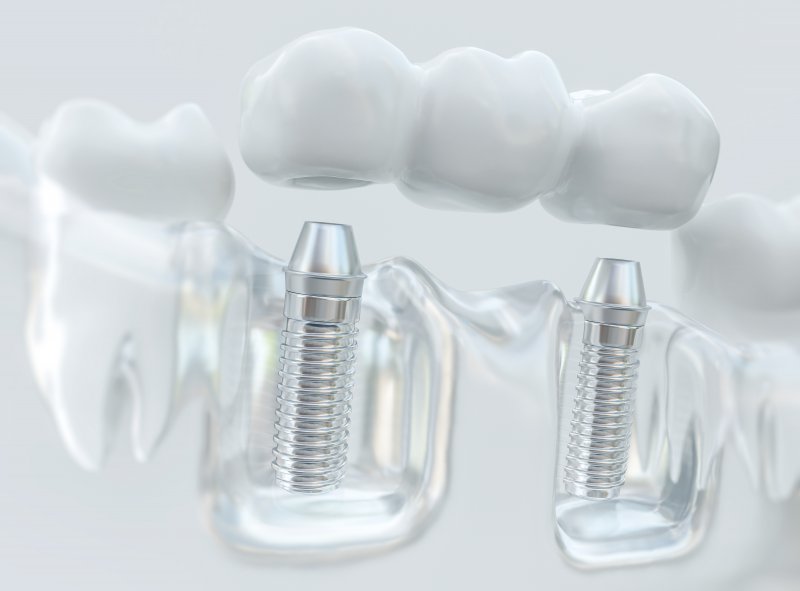
When you think of bridges you think of stability, security, and strength. For those who are struggling with tooth loss, dental bridges can offer all of those things. The key, of course, is maintaining them well. If you’re wondering how long your dental bridges are likely to last, here’s a quick guide to answer all your questions.
What is a Dental Bridge?
Dental bridges are used to replace one tooth or several teeth that are right next to each other. There are two kinds: fixed and removable. Fixed bridges consist of two dental crowns and the pontics (replacement teeth) between them. The dental crowns are attached permanently to either your natural teeth or to a dental implant. Removable bridges are like fixed ones but aren’t cemented onto your teeth. That, or instead of having crowns on either side, they have a thin loop of wire that holds the prosthetic in place.
How Long Do Dental Bridges Last?
The lifespan of your dental bridges can vary widely depending on several factors, most prominently your commitment to dental hygiene. With proper care, it can last anywhere from 5-7 years, but with diligent upkeep, your restoration could serve you well for a full decade.
How to Take Care of Your Dental Bridge
How you maintain your restoration depends on what variety you have.
Here are some tips for gently cleaning removable dental bridges that may not apply to the fixed version:
- Scrub with a soft-bristled toothbrush and cool water
- Clean your dental bridge over a soft surface (like a towel), so it won’t break if dropped
- Don’t rinse with hot water, as it can warp your dental bridge
- Don’t soak your bridge
sovernight, as the metal attachments could rust
And here are some tips that apply to any dental bridge:
- Brush and floss daily, and rinse with an ADA approved mouthwash
- Avoid chewing on your nails, biting pens, or using your teeth to open packages
- Don’t eat hard, sticky, or brittle foods that can damage your dental bridge
- See your dentist biannually for a check-up
Your dental bridge is probably made of sturdy, durable materials. That means the biggest difference in their longevity will be how well you treat them.
About the Author
Dr. Teresa Knott is a general dentist with nearly two decades of experience in her field. She’s made it her mission to provide top-notch care in a calm, comforting environment. She’s a graduate of the University of Texas Health Science Center in San Antonio and will use her expertise to make the best recommendation possible for your treatment. If you have any questions about taking care of dental crowns, Dr. Knott can be reached on her website or by phone at (972) 530-5200.
